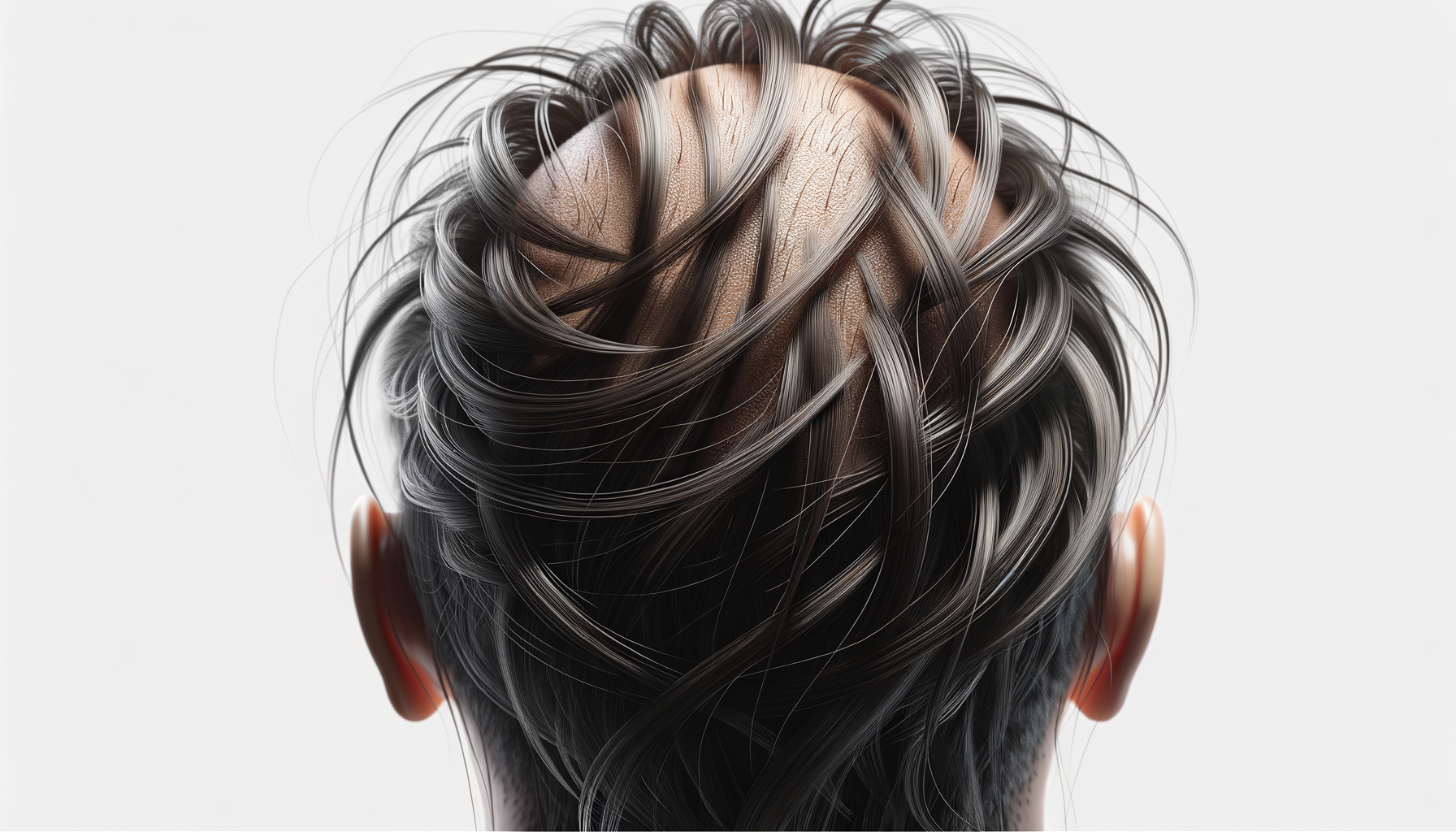Understanding the Causes of Hair Loss
Hair loss, a common concern for many, affects individuals across various age groups and genders. Understanding the root causes is crucial in addressing the issue effectively. Hair loss can be attributed to a myriad of factors, such as genetics, hormonal changes, medical conditions, and lifestyle choices. Androgenetic alopecia, often referred to as male or female pattern baldness, is the most prevalent cause, accounting for nearly 95% of cases. It is a hereditary condition that affects the hair follicles, leading to thinning and eventual hair loss.
Hormonal imbalances can also play a significant role. For instance, conditions like polycystic ovary syndrome (PCOS) or thyroid disorders can disrupt the natural hair growth cycle. Additionally, stress and poor nutrition can exacerbate hair loss. Stress triggers a condition known as telogen effluvium, where hair prematurely enters the shedding phase. Nutritional deficiencies, particularly in iron, zinc, and vitamin D, can weaken hair structure, making it more prone to falling out.
Understanding these causes allows individuals to take proactive steps in managing hair loss. By addressing underlying health issues, adopting a balanced diet, and maintaining a healthy lifestyle, one can significantly mitigate the impact of hair loss.
Diet and Nutrition: Fueling Hair Growth
Nutrition plays a pivotal role in maintaining healthy hair. A well-balanced diet rich in essential vitamins and minerals can promote hair growth and prevent further loss. Proteins, the building blocks of hair, should be a staple in one’s diet. Foods like lean meats, fish, eggs, and legumes provide the necessary amino acids that support hair structure and strength.
Vitamins and minerals are equally important. Vitamin A aids in the production of sebum, an oily substance that moisturizes the scalp, while vitamin E improves blood circulation, ensuring that hair follicles receive adequate nutrients. Meanwhile, vitamin C is essential for collagen production, a protein that strengthens hair. Iron and zinc are crucial for hair tissue growth and repair, with deficiencies often leading to hair thinning.
Incorporating a variety of fruits, vegetables, nuts, and seeds into one’s diet can provide these vital nutrients. For those who struggle to meet their nutritional needs through diet alone, supplements may be considered, although it’s advisable to consult with a healthcare professional before starting any supplement regimen.
Effective Hair Care Practices
Proper hair care practices can significantly influence hair health and minimize loss. Gentle handling of hair is essential; harsh brushing or styling can cause breakage and exacerbate hair loss. Using a wide-toothed comb can help prevent unnecessary pulling and tangling.
Choosing the right hair care products is also crucial. Shampoos and conditioners that are free from sulfates and parabens are generally gentler on the scalp and hair. Additionally, incorporating deep conditioning treatments or hair masks can provide much-needed moisture and nourishment.
Avoiding excessive heat styling and chemical treatments is advisable, as these can weaken the hair shaft and lead to damage. If heat styling is necessary, using a heat protectant spray can minimize potential harm. Regular trims can also help maintain healthy hair by removing split ends and preventing further breakage.
By adopting these practices, individuals can create an environment conducive to healthy hair growth and reduce the risk of hair loss.
Medical Treatments and Therapies
For those experiencing significant hair loss, medical treatments and therapies may offer a viable solution. Over-the-counter topical treatments, such as minoxidil, have been shown to stimulate hair growth and slow down hair loss. These treatments are typically applied directly to the scalp and can be effective for both men and women.
Prescription medications, like finasteride, are another option, particularly for men. This oral medication works by inhibiting the production of a hormone that contributes to hair loss. However, it’s important to note that these medications may have side effects and should be used under the guidance of a healthcare provider.
In recent years, more advanced therapies have emerged, including platelet-rich plasma (PRP) therapy and low-level laser therapy (LLLT). PRP involves injecting a concentration of a patient’s own platelets into the scalp to promote hair growth, while LLLT uses laser devices to stimulate hair follicles.
Each treatment has its own set of advantages and considerations, making it essential for individuals to consult with a dermatologist or trichologist to determine the most appropriate course of action based on their specific needs.
Natural Remedies and Lifestyle Changes
In addition to medical treatments, there are several natural remedies and lifestyle changes that can support hair health. Essential oils, such as rosemary and peppermint oil, are believed to promote hair growth when massaged into the scalp. These oils can be diluted with a carrier oil, like coconut or jojoba oil, to enhance their effects.
Herbal supplements, including saw palmetto and ginseng, are also popular choices for supporting hair health. These supplements are thought to improve circulation and provide nutrients that benefit hair growth. However, it’s important to approach herbal remedies with caution and consult with a healthcare professional before use.
Lifestyle changes can also have a profound impact. Reducing stress through practices like yoga, meditation, or regular exercise can help maintain a healthy hair growth cycle. Adequate sleep is another crucial factor, as it allows the body to repair and regenerate, including the hair.
By integrating these natural approaches and lifestyle adjustments, individuals can create a holistic strategy for managing hair loss and promoting healthier hair.




Leave a Reply